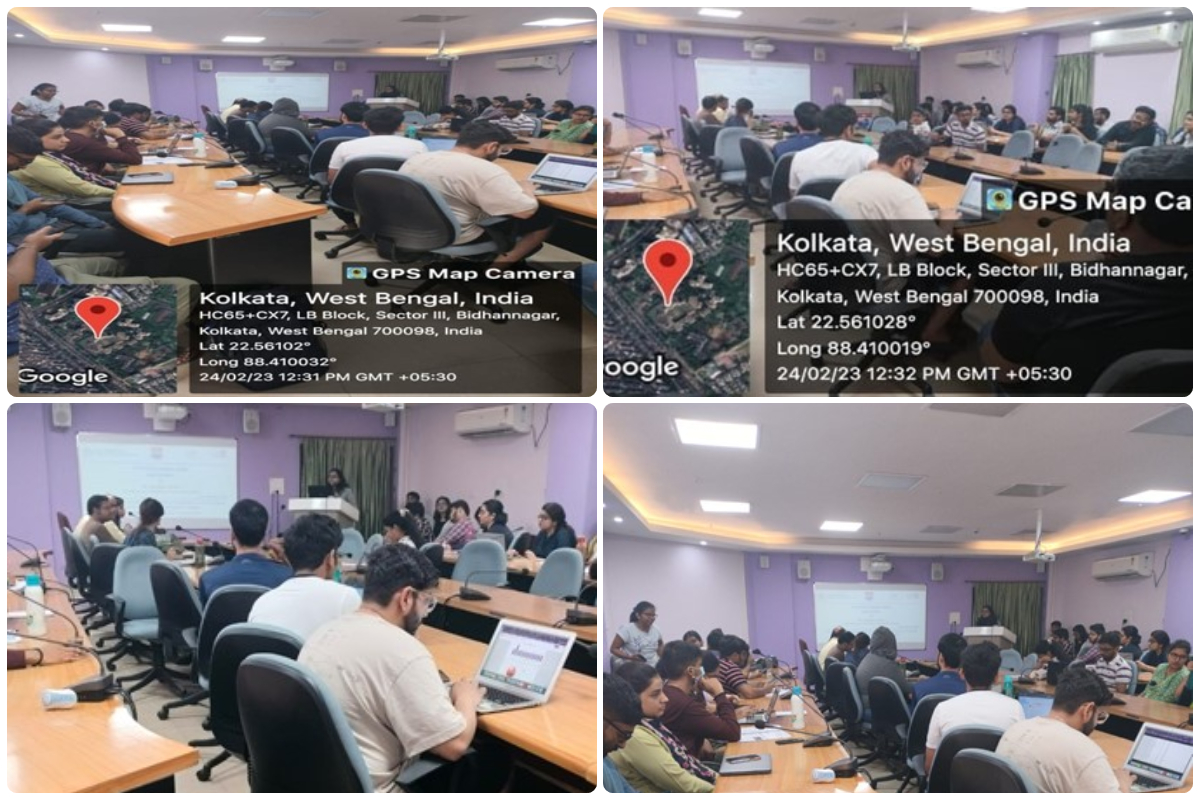LECTURE ON CARTELS AND LENIENCY BY MS. JYOTSNA YADAV, JOINT DIRECTOR OF CCI: A COLLABORATION BETWEEN NUJS AND THE COMPETITION COMMISSION OF INDIA
Date: 24th February, 2023.; Venue: Room Number 107, West Bengal National University of Juridical Sciences
About: The West Bengal National University of Juridical Sciences (through its Society of International Trade and Competition Law, and Centre for Competition Law) conducted the 2nd Lecture of the CCI-NUJS Lecture Series, in collaboration with the Competition Commission of India. The Joint Director of the CCI, Ms. Jyotsna Yadav, was the speaker of the second lecture/session and delivered a lecture on the cartel and leniency regime under Indian competition law.
Introduction/Objective:
Competition law is a critical tool for promoting competition and preventing various anti-competitive practices that harm consumers and the market. One of the most pernicious forms of an anti-competitive agreement is a cartel, which is a horizontal agreement presumed to have an appreciable adverse effect on competition in the market. It is defined under Section 2(c) of Competition Act 2002 (the Act).
However, proving a cartel is not an easy task and Competition Commission of India (CCI) may have to rely on circumstantial evidence gathered during investigation, and also the existence of plus factors, to prove a cartel. This means that the CCI can rely on a “preponderance of probabilities” to prove a cartel case. The leniency program under Section 46 of the Act has helped the CCI in many investigations, in exposing cartels. The CCI has been proactive in granting leniency, thereby encouraging many lesser penalty applications. However, the leniency regime still has some grey areas and is being further strengthened by the CCI.
The lecture series envisaged to inculcate in students an understanding of the practical aspects of the leniency regime in cartel cases. The speaker being a competition law expert, addressed many crucial aspects of leniency cases, like how to file leniency applications, who is eligible to apply for leniency, what is marker status, and how an applicant can get a markup status etc. In addition, she also elaborated on the new Amendment Bill of 2022, which aims to bring about progressive changes in the leniency regime.
Content and Outcome:
The speaker started by explaining the Leniency Regulations which govern the procedure and extent to which leniency (i.e., lesser penalties) can be granted to applicants. The speaker drew our attention to the fact that the following can file for leniency application:
i. Enterprise(s) as defined under Section 2(h); and
ii. Individual(s)* (inserted by 2017 amendment)
who are part of a cartel.
During the course of enquiry, an applicant can approach CCI for leniency at the following stage of investigation: –
i. Before forming prima facie opinion;
ii. After forming prima facie opinion (but before submission of report by the DG in the matter).
Following are the conditions for grant of leniency-
i. Makes a ‘full, true and vital disclosure’ in respect of contravention under Section 3 of the Act.
ii. Ceases to participate in the cartel (unless directed otherwise by the CCI. Though CCI has so far has not directed an enterprise or individual to continue to engage in the cartel as part of its leniency proceeding).
iii. Does not conceal, destroy, manipulate or remove any relevant document/evidence in any manner that may contribute to establishment of cartel.
iv. Continues to cooperate genuinely, fully, continuously and expeditiously throughout the investigation and otherwise, until completion of the proceedings before the Commission.
v. Complies with any other restrictions or conditions imposed by the CCI.
The speaker in the last part of discussion, also suggested the measures which CCI is undertaking to keep a robust leniency regime: –
i. Amendments underway
ii. Diagnostic tool kit
iii. Competition Compliance Manual
iv. Market studies
v. Advocacy at diverse levels
vi. Consultation mechanism
She also elaborated on the proposed amendments in the leniency regime intended to introduced through Competition Amendment Bill 2022-
i. Leniency Plus
ii. Withdrawal of application
This lecture series helped students/listeners to understand how far Competition Law has been able to use the Leniency Program to foster equitable competition and curb cartelization in Indian markets.










 Users Today : 46
Users Today : 46 Users Last 7 days : 4239
Users Last 7 days : 4239 Total views : 1093285
Total views : 1093285